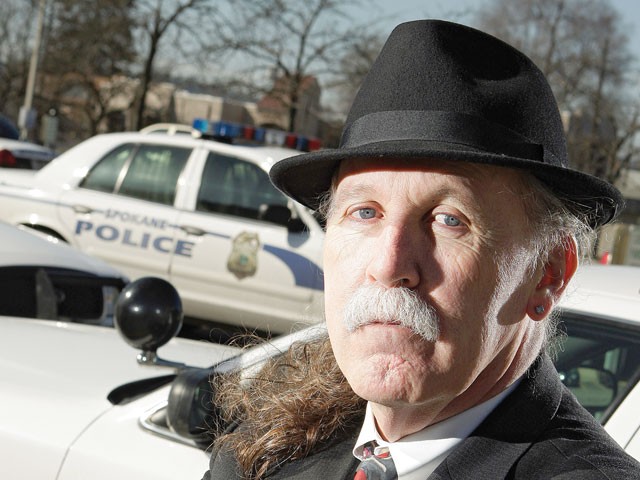Spokane City Council Chambers, 1 am. In these lean economic times, does Spokane have a budget for late-night pizza? A few pizza boxes scattered around the council chambers Monday — check that — early Tuesday would at least have been some tangible reward for gutting out a seven-hour marathon session that ended with two hours of testimony — but no vote — on the much-debated issue of granting more independence to the police ombudsman.
The debate has gone on so long that even Tim Burns, the city’s first civilian overseer of police conduct, recently reversed a year of public statements that he did not need more independence or investigative authority.
Last week, Burns announced he now welcomes more independence in order to give his Office of Police Ombudsman more credibility.
What’s lacking — still — is an ordinance granting such authority.
Councilman Jon Snyder had promised in late May that, in exchange for a month of tweaking the legal language, independence would be bestowed upon the ombudsman Monday.
“Nay!” a frustrated Snyder exclaimed in the wee hours, the lone vote against a motion to delay such powers for yet another week at the end of Monday/ Tuesday’s draining meeting.
Council President Joe Shogan suggested the delay, citing several factors: Councilwoman Nancy McLaughlin, listening in via telephone from an Association of Washington Cities meeting, had hung up long before; a number of people who had signed up to testify had to go home before getting a chance; and the council still had plenty to figure out in the latest version of the ombudsman ordinance that nobody saw until that afternoon.
Councilman Bob Apple augmented the need for delay: “The public would be outraged if we got an ordinance this afternoon and then passed it at one in the morning.”
The ombudsman currently has the ability to attend and ask questions at internal affairs interviews.
The ordinance’s latest incarnation would allow the ombudsman to begin interviewing complainants and witnesses independently of the police department’s internal affairs division as soon as a complaint is received. He still would have no role in disciplining officers for any misconduct — a role that stays with the department.
Under the new proposal, the ombudsman would also be required to write — and publish on the OPO website — a “closing report” summarizing each complaint, listing what actions were taken and what issues addressed. And he would have to contact every complainant by letter or interview to summarize their case when completed.
Apple warned people to “take a look at section E — it guts everything else.”
The paragraph appears to give exclusive authority to police administration on what complaints warrant investigation. An earlier phrase allowing the ombudsman a voice in this process has been struck.
Councilman Richard Rush had also hoped to avoid further delay on a vote. He says he fears the oft-contested ordinance may unravel in the coming week.
“We are getting pushback from every which way,” Rush says. “We are getting nastygrams from the Police Guild.
We’ve had five meetings with the city attorneys during the last three weeks.”
But after this week’s epic council session, people appear to finally be talked-out about independence for the ombudsman, who himself finally wants independence. So this Monday, cross your fingers and order a pizza: The council may finally vote.




















